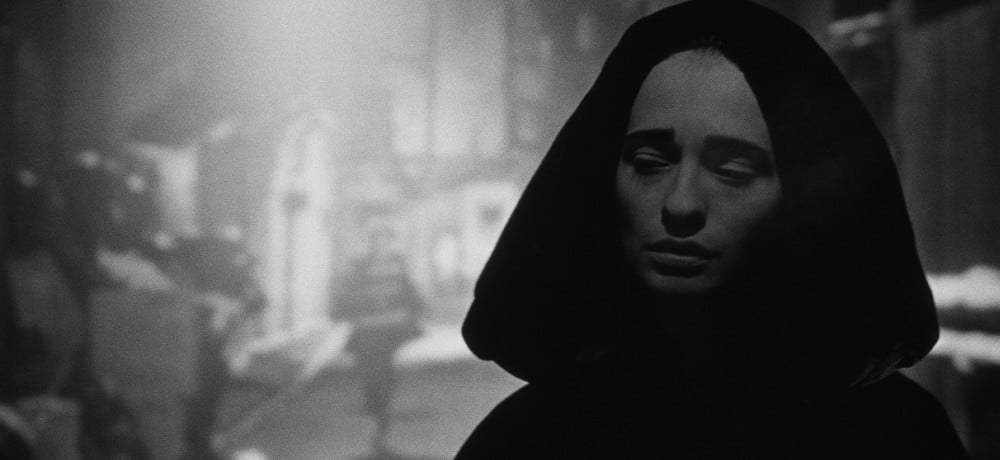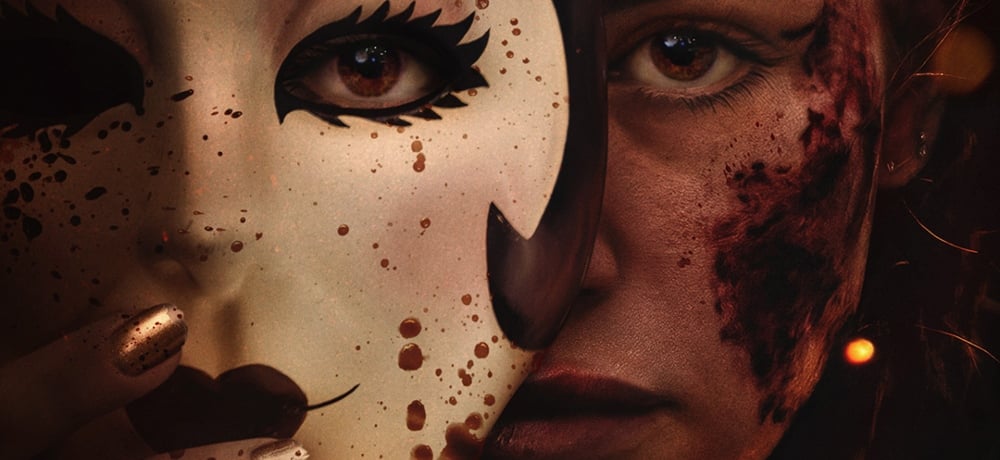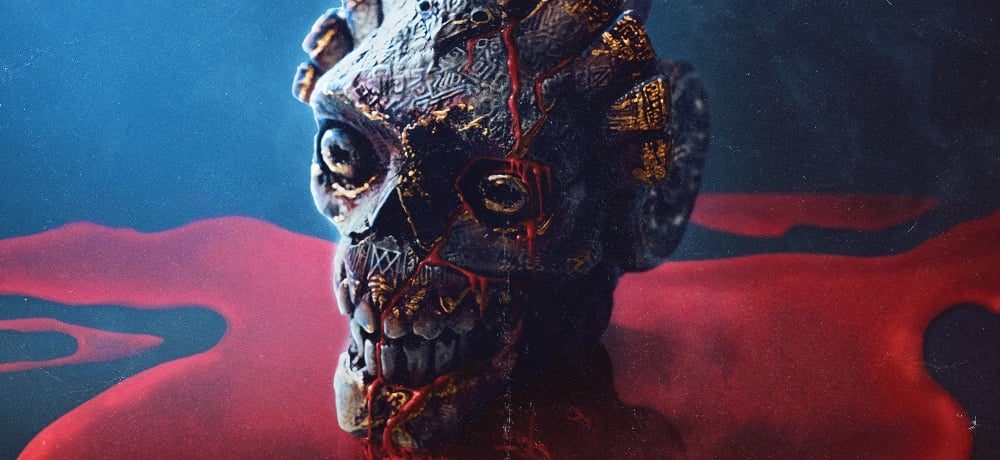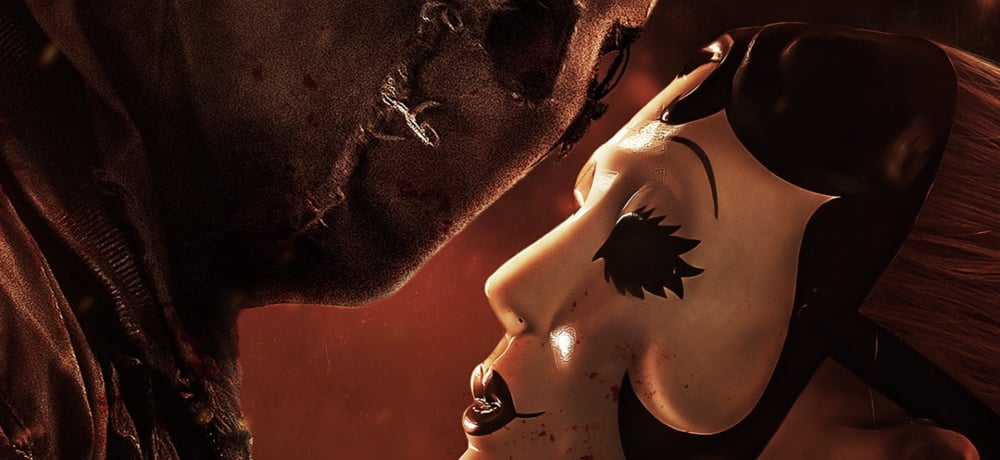





In theaters and on VOD beginning Friday, May 12th is writer/director Ben Young’s emotional captivity thriller, Hounds of Love, which has stunned audiences during its festival fun over the last several months, including at the SXSW and Overlook film festivals (read my review here). Hailing from Australia, Hounds of Love is a harrowing tale about a dangerous couple (played by Stephen Curry and Emma Booth) with a predilection for kidnapping and torturing young girls, including a teenager named Vicki (Ashleigh Cummings), who senses a divide between the couple, and tries to use that to her advantage in hopes of escaping her nightmarish ordeal.
Daily Dead recently spoke to Young about Hounds of Love, and he discussed his approach to the film’s challenging themes, working with his talented cast, and more.
Very excited to chat with you about Hounds of Love today, Ben. I loved it back when I saw it at SXSW, and the way that you presented this world and these broken people existing within it completely blew me away. I'd love to hear what inspired this story and about your approach as well, especially since so many of the film’s horrific moments play off-screen.
Ben Young: Thank you. The inspiration came from my mum, who writes crime fiction, and often, I steal her research books. I read a book on female serial killers and I just found it fascinating because in the research that I did, women tend to kill for very different reasons than men. And other than Monster, it's not really something that I've seen explored on screen very much, so I decided to delve into it a little more.
In my further research, I discovered the horrible phenomenon of couples who kill together. I found nine couples who had committed serial murder together. Unfortunately, there's probably more who are just unheard of. But I thought that was very interesting, particularly given the psychology that was involved, almost like clockwork, it involved psychopathic men and very vulnerable women. The man would find this vulnerable person and build her up and then tear her down to the point where she truly believed that she didn't have an identity outside of him. Then, he could manipulate her into doing anything that he wanted to keep them together. So that's really the psychology that I wanted to explore.
And the idea of not showing the stuff was really important because I didn't want to make a film about the acts that these people commit, because we've seen that. We've seen so much of that in serial killer [films]. I wanted to make a movie about the people involved in that kind of thing, so that was a conscious decision. I knew that if I had shown what was going on, that's all anybody would have paid attention to. So, it was sort of my statement that this is not a movie about the acts they commit. This is a movie about the people who commit the acts.
When you're doing a film like this, where it's so character-driven, you have to make sure you have the right cast. And Emma, Ashleigh, and Stephen are all absolutely phenomenal. I'd love for you to talk about finding them and working with them throughout the shoot.
Ben Young: Well, interestingly enough, I've known Emma for 15 or 20 years. She's one of my dearest friends, so I wrote the role for her. But she turned it down and then only ended up getting involved very last minute.
But Stephen Curry is one of Australia's most beloved comedic actors, and he's so beloved that you can't walk down the street with him anywhere in Australia without being mobbed by his fans. He was not someone I'd ever thought of for the role. He was suggested by our casting director, Anousha Zarkesh, who called me and just said, "Hey, look, I know you've probably never thought of him for the role, but Stephen Curry has just read Hounds of Love and really loves it. He really wants to do something dark, just to get out of just being the comedy guy." I said, "Oh, wow, that's interesting."
Because one of the things that I had doubted in my own screenplay was whether or not an audience was going to swallow the fact that this young girl gets in a car with two strangers. So I realized that the context that an Australian audience, at least, is going to bring to Stephen Curry is that they love him. So nobody is going to have an issue with believing that this girl would get in the car with him because nearly everyone in Australia would. That was a big part of casting Steve.
He kind of agreed to do the film probably somewhere between six and eight months before we started shooting. So, him and me met a couple of times and spoke about it, and had traded a few phone calls and traded a lot of emails and developed the character that way. We spoke about it a lot ahead of time, but Emma and I didn't. Emma and I started swapping emails towards the end. We had a very intense time and then we had only about three or four rehearsals with me, Emma, Steve, and Ash, and we just spoke through it all, really. I answered any questions that they had and we went from there. But I was really lucky in a sense that Emma and Stephen had done a miniseries [Cloudstreet] together, where he actually played her dad.
So they had a previous friendship and working relationship, and I think that made a big difference. Ashleigh was sort of the black sheep in the sense that she didn't know me, she didn't know Steve, and she didn't know Emma before she came on board. But that probably all kind of helped. I said to all of them, "We're going to do some pretty brutal stuff, and some pretty emotional stuff here, so if there's anything that I'm asking you to do that you're uncomfortable doing, just talk to me about it and we'll see if we can't find another way to communicate that on screen that doesn't affect the story, but that you're more comfortable doing." So we just did a lot of talking. It was a very open and honest relationship about what we needed to achieve and what the best way to do that would be.
You set this during the 1980s, which for me is always fun, but it also seems like that freed you up a little bit in terms of technology in the storytelling, because you don't have to deal with a lot of the trappings that might come with trying to do this story now. Was that a conscious choice on your part to eliminate that technology so that you could just really focus more on the characters and the story as opposed to other elements that might trip up things these days?
Ben Young: Absolutely. There are three reasons why I decided to set it in the time period that I did. One of them is definitely the technology. With social media and mobile phones now, this story simply wouldn't work in the present tense. So, that was one reason. The other reason was that we had virtually no money to make it, but where I'm from there was a bit of a boom in the '80s, so there are so many houses and suburbs and streets that look exactly as they did then—a very cheap way to give a low-budget film a distinctive look. The third reason I did it was that it was also a good way to inspire a soundtrack that hopefully would make the film stand out a little bit as well.
Before we go, I wanted to chat about the look of Hounds of Love. Was it conscientious on your part, when you were working with your DP [Michael McDermott], to make this feel and look differently than a lot of films that have a similar subject matter?
Ben Young: Yes, absolutely. I'm really interested in performance and I'm really interested in tension. For me, tension is all about what could happen, not about what does happen. It demands a slower pace. So, I always wanted to make it a very controlled film, and also that plays into it thematically. In many ways, it's all about possession and control, so I thought if I had the camera very controlled and then have it loosen up as the characters start to lose control, that was all a very, very conscious decision.
We also did some slo-mo camera work, which I know feels so different than a lot of other films. That was part of us incorporating this thing that reflects Emma and Stephen’s characters’ POVs. For them, it’s all about observing the world differently, and taking in the detail that most of us just don't notice in everyday suburbia.
---------
In case you missed it, check out Heather's SXSW interview with Hounds of Love co-star Ashleigh Cummings.